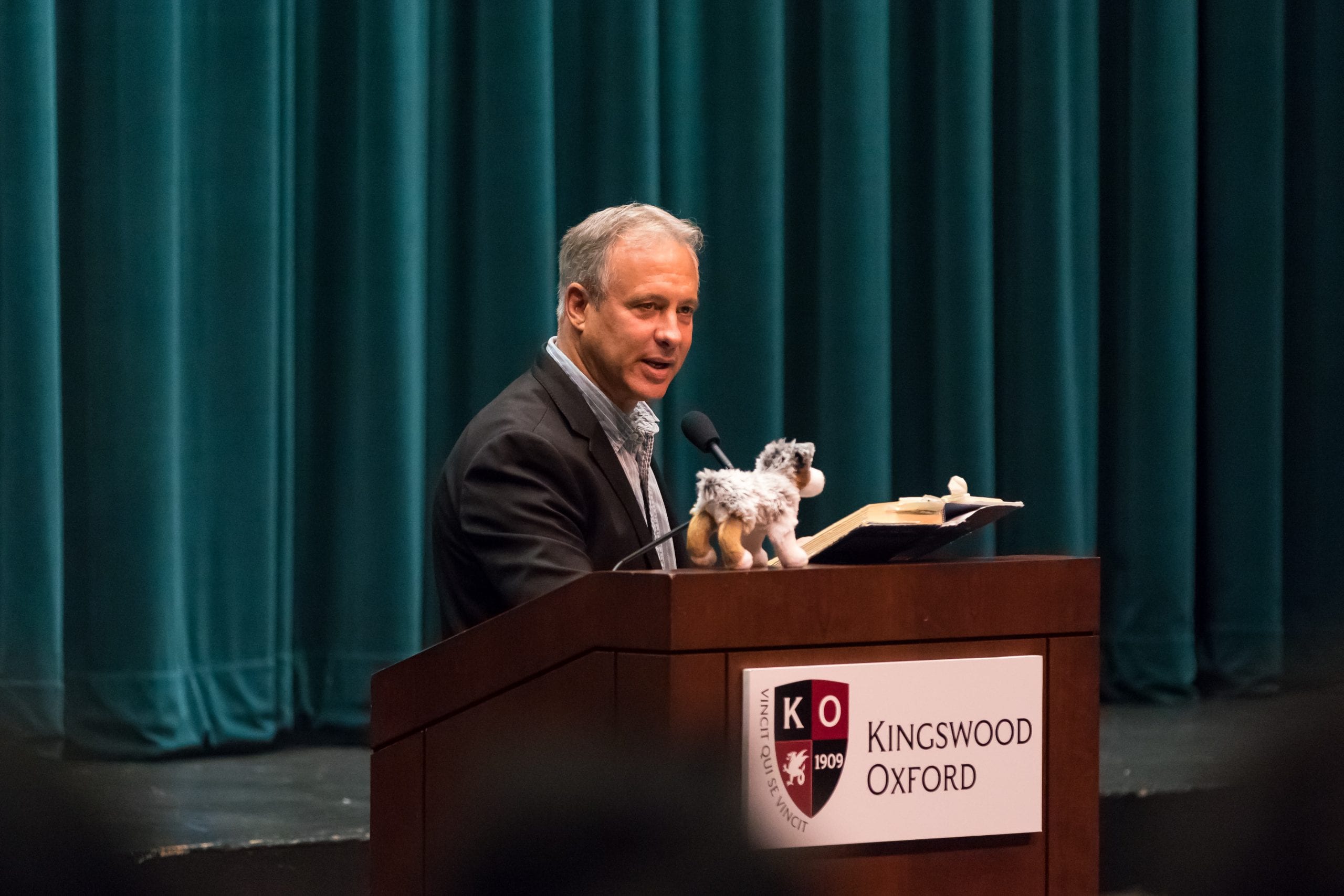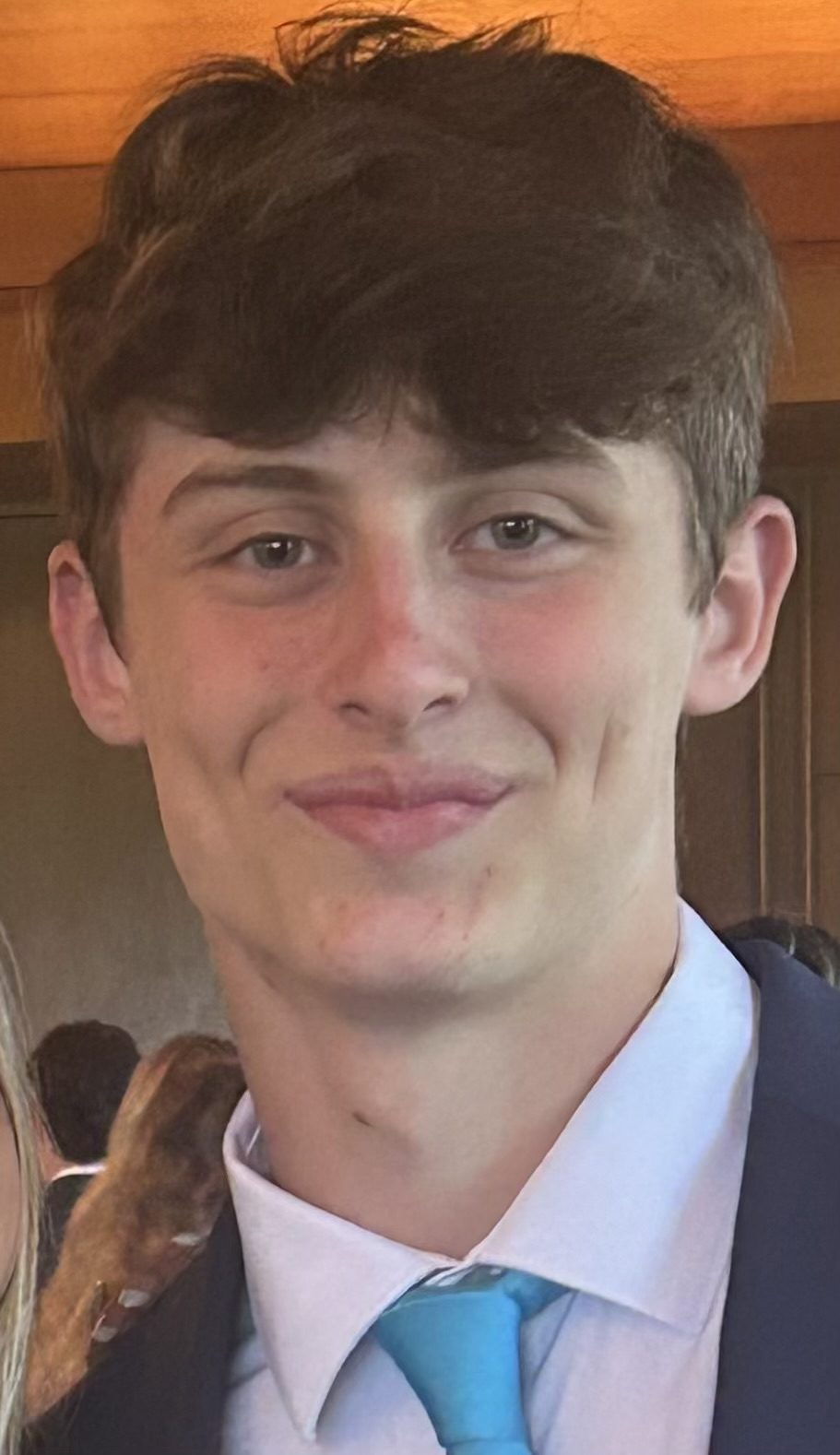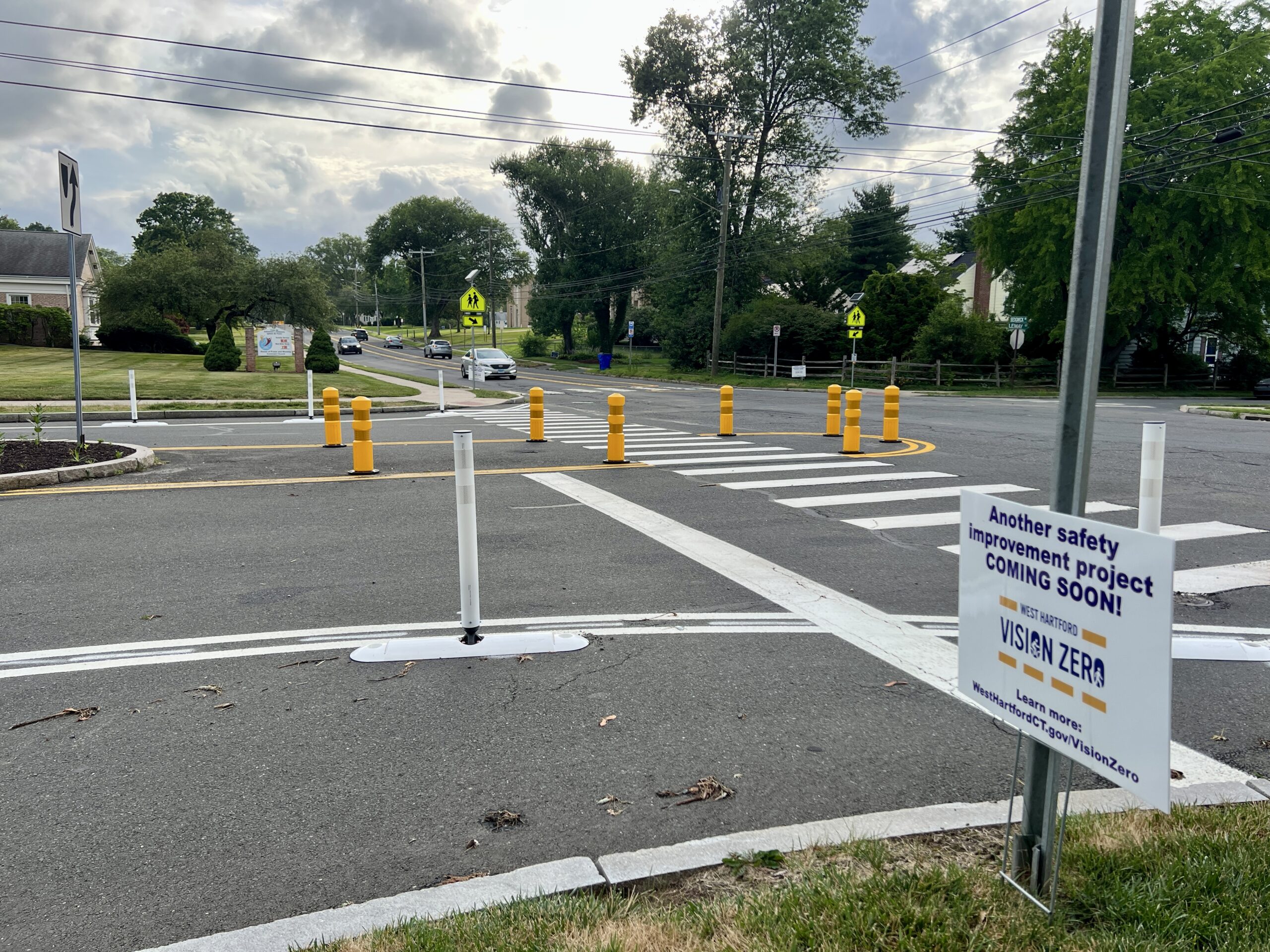Kingswood Oxford’s 35th Baird Symposium Writer Talks of Living and Writing a Life of Adventure

Audio By Carbonatix

Peter Heller. Photo credit: David Newman (submitted photo)
Peter Heller visited Kingswood Oxford School in West Hartford for the annual Baird Symposium.
Submitted by Jackie Pisani, Kingswood Oxford School
That laugh.You can tell a lot about a person about his or her laugh: much like a fingerprint, but more of an exacting x-ray of personality.
Peter Heller, Kingswood Oxford 35th Baird Symposium author of Whale Warriors, Kook, The Dog Stars, The Painter, Celine, punctuated his talk at the recent assembly on Friday, Jan. 19 with exuberant, deep-throated, generous bursts, a testament to his go-for-it lifestyle filled with adventure, loss, beauty and truth. Heller follows a long tradition of literary lions including John Updike, Joyce Carol Oates, Edward Albee, and last year’s Pulitzer prize winning author, Elizabeth Strout, who have visited KO and work-shopped with students.
Raised in Brooklyn Heights, Heller had the good fortune to be read e.e. cummings every night by his father, a questionable choice of poetry for a young child which Heller acknowledged might have been grounds enough to notify child protective services.
After graduating from the oeuvre of cummings, his father introduced the young Heller to Yeats, and thus was born Heller’s love of language.
As a student at St. Ann’s, an arts-oriented private school that values individuality, an astute English librarian at the school Heller had a crush on because she pronounced his name “Pe-tah,” suggested that he read Hemingway’s In Our Time. Heller related that this book, a collection of stories, caused a tectonic shift in his thinking. He said of In Our Time, “I wanted to be Nick hopping off that freight train. I wanted to drink cowboy coffee. I didn’t know what that was, but I knew I wanted to drink it. I wanted to have a girlfriend to break up with. I wanted to have that ability to write that goes through my skin and straight to my heart. I wanted to be able to do that.”
A self-described word geek, the 11-year-old Heller wrote words on cards, copied poems, read the dictionary, and studied botany so he knew the names of trees. While a student a Dartmouth he continued to write, but chastised his teachers retroactively for failing to inform him that one couldn’t have a lucrative career writing.
Through the prodding of a friend who suggested that Heller combine his love of whitewater kayaking, the outdoors and writing, he contacted Outside Magazine so he could marry his interests and have the periodical pay for his exploits. Heller said the beauty of youth “is that you don’t know what you can’t do” so he perused the masthead of Outside to locate the person with the nicest name he could call and ask the editor if Heller could write for the publication. He pitched his idea: a Class 5 kayaker writing about a Tibetan Himalayan adventure down a treacherous river that hasn’t been navigated since 1959. After an “incredulous pause,” the editor agreed to pay for half the trip up front and pay the balance upon his return with the article.
Navigating the treacherous Tsangpo Gorge in Eastern Tibet, three times as deep as the Grand Canyon, his book Hell or High Water: Surviving Tibet’s Tsangpo River, captures the tale.
On the first day of the practice run, Heller related that the storm clouds were gathering, and the river was rising at an alarming rate. While on the river, Heller spotted a kayak cartwheeling down the river. Following the kayak, he saw a helmet popping up from the raging waters, and he and a buddy pulled the Chinese river guide to safety. Scanning the violent waters again, Heller sighted another helmet and piloted their kayak towards it. The kayaker was struggling and pinned under a rock. Heller and his companion tried to keep the drowning man’s head above the water, but they were unsuccessful. The kayaker died in his arms. He and his team drove to the shore to inform the young man’s wife that her newlywed husband had perished. Trying to process what had happened, on the second day, the grief-stricken group sat around singing Amazing Grace and read the poems of a ninth-century Chinese poet.
Despite this heartbreaking start, Heller continued to amass extraordinary experiences and cataloged each of them in his non-fiction writing.
From his assignment in the Musuku River in Afghanistan, Heller told the story of a chain-smoking Russian pranking another team searching for the elusive Yeti by fashioning monstrous (only left-footed) footprints in the snow that caused an international incident.
Another memoir, Kook, chronicles his learning to surf off the coast of Mexico while finding true love with his wife, Kim. His Whale Warriors recounts his sailing in 40-foot waves in Antarctica with an eco-radical group that tears open the hulls of Japanese whaling vessels with the “can opener,” a blade fastened to the front of their ship festooned with Jolly Rogers to stop the slaughter of these great mammals.
Yet for all his peripatetic lifestyle, Heller considered writing his first novel, The Dog Stars, a post-apocalyptic story, the most thrilling experience in his life.
Not knowing where to start, his friend Carlton Cuse, producer of Bates Motel and Lost, gave him the creative permission to just start writing the first line of the story much like Stephen King and Elmore Leonard to see where things led. And so Heller, stationed in his local coffee shop, wrote the first line: “I keep the beast running.” He never looked back.
Describing the process he said, “It was like sitting across a campfire and Hig, the main character, was telling me what was happening. I would burst out laughing or crying. People in the diner must have thought, ‘That poor son of a bitch’s dog must have died.’ I was transported by what I was writing. Unlike non-fiction, I didn’t want to know what was going to happen. It was the same thrill of running a river.”
Through Heller’s stay at KO, he work-shopped with the senior symposium class that read all his works, lunched with middle schoolers, and had a dinner and talk with teachers. He said, “It was awesome to be here. It’s very special to have students read your entire opus, and you’re not even dead yet. The KO students were smart, engaged and vital. I didn’t even know kids like that existed!”
He added, “All my best writing comes from vulnerability.” Perhaps that’s why it surprised him that the final words of The Dog Stars “came out of nowhere” and were the lyrics from the ninth century Chinese poet, Li Shangyin, the very poem he read when the young kayaker died in the Tibetan river.
It also happened to be how Heller ended his inspirational assembly with the students.
When will I be home? I don’t know.
In the mountains, in the rainy night,
The Autumn lake is flooded.
Someday we will be back together again.
We will sit in the candlelight of the West window.
And I will tell you how I remembered you
Tonight on the stormy mountain.
Like what you see here? Click here to subscribe to We-Ha’s newsletter so you’ll always be in the know about what’s happening in West Hartford!



